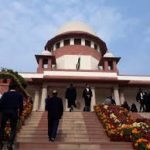The case originated from a complaint filed by the Bank of Baroda against several individuals, including the present appellants. The allegations against the appellants included fraudulent diversion of funds sanctioned to M/s. Pinambakkam Corporation, orchestrated fraudulent encashment of multiple cheques, and misuse of a fraudulently obtained credit limit, causing a loss of Rs. 9.5 crore to the Bank.
One of the appellants, B. Gnanasekharn (Appellant No. 1), was accused of facilitating the fraudulent diversion of funds sanctioned to M/s. Pinambakkam Corporation and assisting the encashment of multiple cheques drawn from fraudulently obtained credit limits using a network of relatives, employees, and fictitious identities.
His brother, Ananthasekharan (Appellant No. 2), was specifically accused of assisting in the scheme by operating a bank account in the name of M/s. Bharath Traders, through which cheques were deposited and funds withdrawn, sometimes with his wife. He was also accused of physically filling cheques and ensuring their encashment.
Parallel to the criminal proceedings, the Bank initiated recovery proceedings before the Debt Recovery Tribunal (DRT) in 2006 and 2008.
Crucially, a One Time Settlement (OTS) scheme was arrived at between the principal appellants and the Bank.
Under this settlement, the Bank received the entire outstanding amount of Rs. 7,35,88,000/-.
Following the full repayment, the Bank recorded its satisfaction and issued certificates of satisfaction.
Despite the settlement and the Bank’s satisfaction, the criminal proceedings against the appellants continued.
The High Court had previously allowed a petition under Section 482 Cr.P.C. for a co-accused (the wife of appellant No. 2), quashing the FIR as it pertained to her.
Law Involved
The appellants had filed petitions before the High Court under Section 482 of the Criminal Procedure Code (Cr.P.C.), seeking to quash the criminal proceedings.
Section 482 Cr.P.C. confers inherent powers upon the High Court to make orders necessary to prevent abuse of the process of any court or otherwise to secure the ends of justice.
The criminal complaints were registered under various sections of the Indian Penal Code (IPC), including Sections 406 (criminal breach of trust), 420 (cheating), 467 (forgery of valuable security), 468 (forgery for purpose of cheating), 471 (using as genuine a forged document), and 120B (criminal conspiracy).
Reasoning and Holding
The appellants contended that since the dispute was commercial in nature and had been amicably resolved through a One Time Settlement, resulting in the Bank receiving its entire outstanding amount, the criminal proceedings against them should be quashed. They argued that continuing the proceedings would serve no meaningful purpose.
The Bank confirmed that it had received the full amount and had no objections to the quashing of the criminal proceedings. The recovery proceedings initiated by the Bank were also dismissed as settled.
The High Court, however, had previously dismissed the appellants’ petition to quash the proceedings, stating that a prima facie case had been made out, and private settlements should not interfere with criminal proceedings. This was despite the fact that the High Court had quashed similar proceedings against a co-accused (wife of Appellant No. 2) based on the very same settlement.
The Supreme Court noted that the factual and legal position of the appellants was identical to that of the co-accused whose FIR had already been quashed.
The Court reasoned that when a dispute, primarily arising from a commercial transaction, has been fully and finally settled and the victim (the Bank) has received the entire outstanding amount, continuing criminal proceedings serves no meaningful purpose, especially when there is no continuing public interest.
While acknowledging that private settlements do not automatically lead to quashing serious criminal charges, the Court distinguished this case by highlighting that the dispute was largely private in nature (despite involving elements of cheating and forgery) and the pecuniary loss suffered by the Bank had been fully compensated.
The Supreme Court therefore found it appropriate to quash the pending criminal proceedings against the appellants, setting aside the High Court’s order that had refused to do so.
N.S. Gnaneshwaran Etc. V. The Inspector Of Police And Another
Supreme Court: 2025 INSC 787: (DoJ 28-05-2025)






